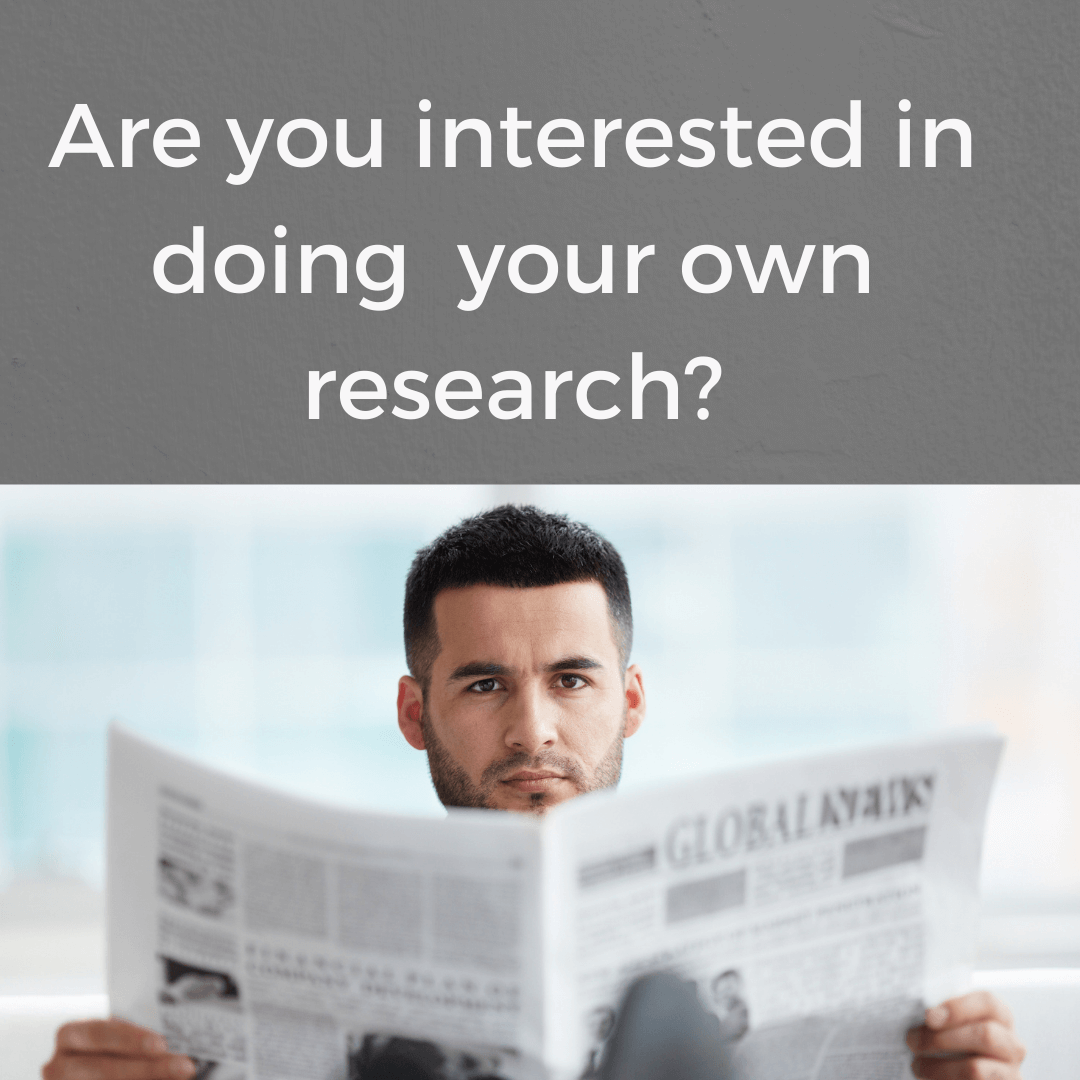
Great Tips for Doing Your Own Research
Years ago, we believed everything we read in the newspaper. We took expert advice at face value. Conspiracy theories were not a significant part of our culture. But today we are much less likely to trust our sources. Many people report wanting to do their own research before making decisions. And bringing our own critical thinking skills to decision making is a great idea because we are being exposed to more hoaxes, scams, and fraudsters than ever. But, and this is a big “but”, we need to educate ourselves on how to do that research.
You may already be aware of the website snopes.com because it is the oldest and largest on-line fact-checking site. Did astronaut Buzz Aldrin really admit that the moon landing was faked? Snopes will tell you no, that isn’t true. They will also explain how the rumour developed and why it isn’t true. Snopes is considered a reliable site because they have a long history of factual reporting, and because they are completely transparent about who they are and how they are funded. (They can be found at https://www.snopes.com/)
If Snopes doesn’t have the answer, and we still want to do our own research, we need to begin with reliable sources. We must resist the risk of being swayed by fascinating or compelling news stories; we must methodically ask all kinds of tough questions.
Here is a quick example. A gynecologist in Mexico reports that COVID vaccines are responsible for producing a strain of “transhuman” babies with all black eyeballs who are capable of walking at two months of age. Keeping an open mind, these are questions we would want to ask:
- Is this individual known as a reputable physician? Can we independently confirm this individual’s education and experience?
- Specifically, what data has been collected to support these claims? (How many babies are allegedly involved, where and when were they born, over what time, etc.)
- Has the data been collected according to established clinical practice guidelines? Can we see these guidelines?
- Can we review the data ourselves, as well as any other clinical evidence?
- Has the evidence been verified by others, and are they reputable? (If there is video evidence of the walking newborns, how will we know the video hasn’t been tampered with?)
- If there is undeniable proof the problem exists, what alternative theories have been explored? A good research paper will acknowledge all other possible explanations.
- Has the research been reviewed by the doctor’s peers to validate the methodology and findings? Has it been published in a reputable medical journal?
- Are credible news sources picking up this story?
Being able to answer these tough questions is crucial, especially if we are making decisions about our own health. Ideally, everyone would take a research methodology course to learn how to capably evaluate the evidence. Be aware of your own knowledge gaps, and if you feel like you are in over your head, consider starting your research with peer-reviewed publications by scientists associated with accredited universities, published in mainstream journals.
Interested in learning more? The News Literacy Project is a non-partisan, non-profit organization designed to teach us how to be smart consumers of news and information. They are concerned that even sophisticated audiences can have difficult separating reliable, legitimate information from information that has been created to mislead them. On their site (https://newslit.org/) you’ll find all kinds of resources to help you become a savvy critical thinker, able to make informed decisions. If you are going to do your own research, more power to you. Just take the time to fully educate yourself on how to assess information. Be mindful of your own biases and knowledge gaps. Validate your sources. Ask a lot of hard questions. Here’s to being smart information consumers!


